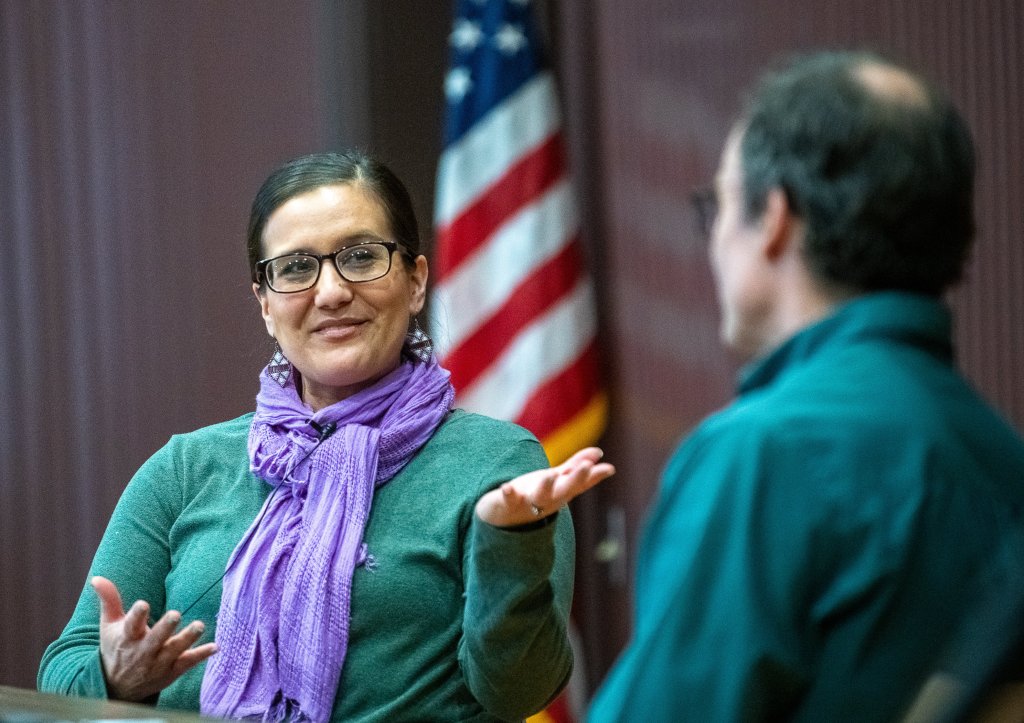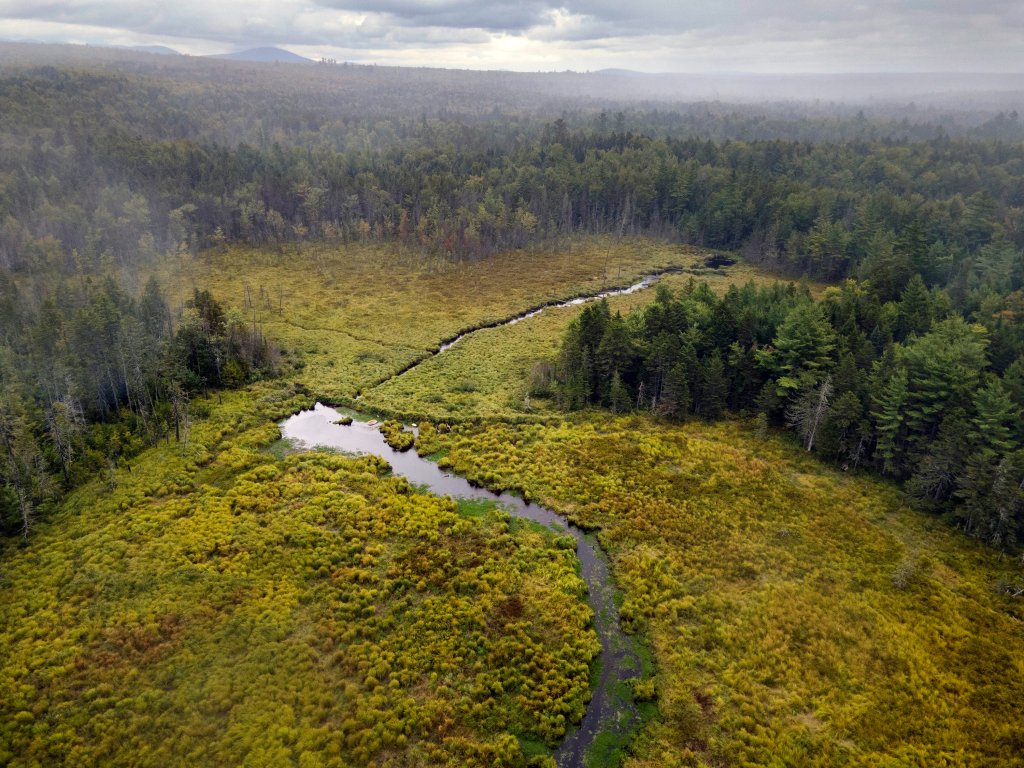A new report from a left-leaning think tank suggests the state should return land — including Acadia National Park, Baxter State Park, and Katahdin Woods and Waters National Monument — to the Wabanaki Nations.
To do so, the Maine Center for Economic Policy suggests deploying a statewide property tax targeted at large landowners, a sales tax on tourists or issuing bonds.
The center’s new report says there is a need for a dramatic restructuring in state-tribal relations to facilitate the return of stolen land and compensation for lost revenue to the Wabanaki Nations because a 1980 settlement has failed to make the tribes whole.

“This whole settlement we’re operating under and that whole history we’re all dealing with is all about the stewardship of land and the theft of land (and) the ramifications of the theft of all that land,” said Maulian Bryant.
Bryant is the executive director of the Wabanaki Alliance, a nonprofit advocacy group leading the charge for tribal sovereignty, and sits on the Center for Economic Policy’s board. She called the 31-page document published Tuesday “unflinching but not judgmental.”
Sovereignty Starts Here by rschafir
Because of the 1980 settlement act, tribes in Maine are uniquely disadvantaged, the report states. Tribes were never able to regain even the land intended for repatriation, while the state has benefitted financially for centuries off the property and limits to tribal sovereignty.
A 2022 oft-cited report from the Harvard Kennedy School suggested that if the Wabanaki Nations achieved legal parity with other tribes, the state GDP could increase $330 million annually and state and local tax revenue would increase by $51 million each year.
However, Gov. Janet Mills has been wary of amendments to the settlement implementing act because changes must also be approved by the tribes, making them extremely difficult to undo. Most recently, she vetoed a bill in the last legislative session that would have prohibited the state from seizing tribal land through eminent domain.
Mills’ office did not respond to a request for comment.
Maine has a moral obligation to return land, the report argues, because the state sold lands it seized illegally from tribes for almost $2.3 million throughout the 1800s, profiting as much as $58 million in today’s currency. Timber harvested from state-owned former Wabanaki territory was likely worth close to $60 million in the modern era.
The 1980 settlement act, which was intended in part to remedy that theft, capped the Passamaquoddy and Penobscot acquisition of “Indian territory” — land held in trust for the tribe — at 150,000 acres and specified that only certain lands may be placed into trust.
No tribe in Maine has acquired the outlined 150,000 acres because of what they describe as bureaucratic, and some say intentional, stumbling blocks. To address this now, MECEP suggests Maine do what states like Illinois or California, or the federal government have done: return land to tribes, fundraise to help tribes buy back stolen land or offer tribes co-stewardship.
MECEP offered several proposals to make that happen. One is to create a state property tax with a mill rate of 0.05, which would would cost the typical homeowner with a $400,000 home $20 each year, and generate $15 million annually.

Donna Loring, who previously served as both a Penobscot Nation representative in the state Legislature and a senior adviser on tribal affairs to Mills, now sits on the Wabanaki Alliance board of directors. She said she supports the finding that economic liberty for the tribes should come through recognition of sovereignty, and land return would be a boon to all.
But Loring said she places her trust in the efforts of community partners such as First Light, a coalition of organizations working to restore Wabanaki control over land in Maine, rather than state government to make that happen.
Reuben M. Schafir is a Report for America corps member who writes about Indigenous communities for the Portland Press Herald.

We invite you to add your comments. We encourage a thoughtful exchange of ideas and information on this website. By joining the conversation, you are agreeing to our commenting policy and terms of use. More information is found on our FAQs. You can modify your screen name here.
Comments are managed by our staff during regular business hours Monday through Friday as well as limited hours on Saturday and Sunday. Comments held for moderation outside of those hours may take longer to approve.
Join the Conversation
Please sign into your CentralMaine.com account to participate in conversations below. If you do not have an account, you can register or subscribe. Questions? Please see our FAQs.